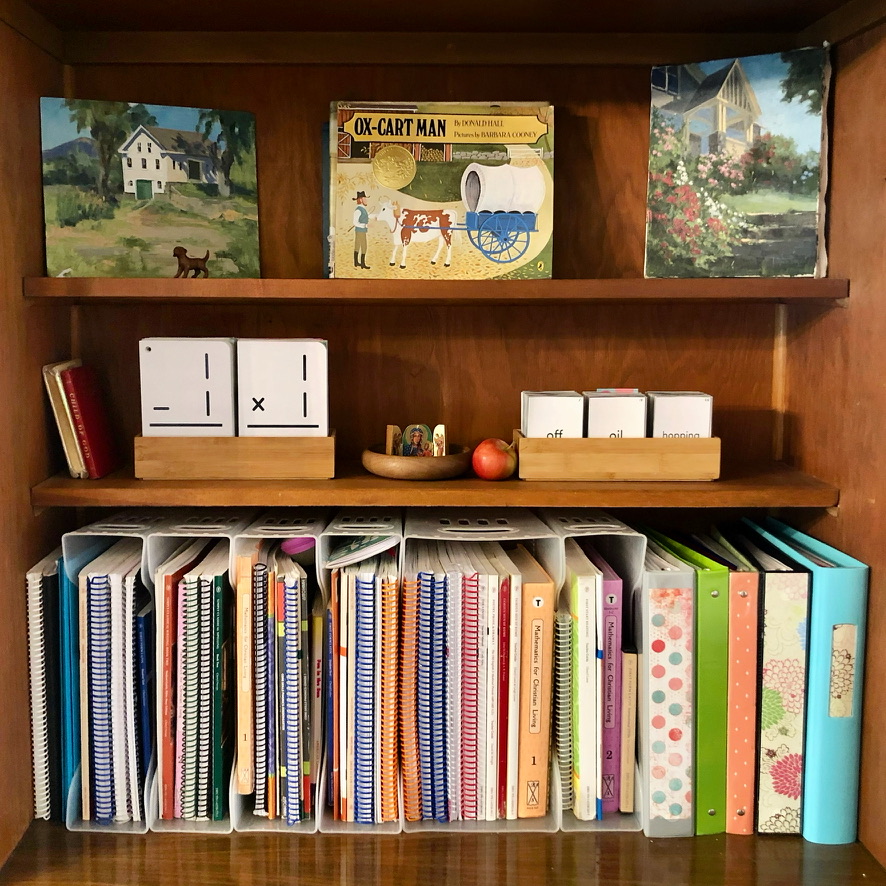
Updated for 2025!
We’ve been using MP since 2015 (I can’t believe it’s been that long!) and our family has been incredibly blessed by both the curriculum and the MP community. I hope this post helps as you consider/begin/continue your homeschooling journey with Memoria Press!
Be sure to use the Table of Contents to quickly find what you need!
This post contains affiliate links. Links to free items may place an affiliate cookie on your device for future purchases. Purchases help support our family at no additional cost to you. For more details, see our full disclosure and privacy policy.
- Why we’re Homeschooling with Memoria Press
- Finding Community when Homeschooling with Memoria Press
- Parent Resources for Homeschooling with Memoria Press
- Teaching Helps for Homeschooling with Memoria Press
- Mom-created Resources for Homeschooling with Memoria Press
- 15 Top Questions about Homeschooling with Memoria Press
- Program
- Placement
- How do I know where to place my children?
- Is my child ready for Memoria’s Kindergarten or First Grade program?
- What is the “Accelerated Track”? What does 3A mean?
- Things to Consider Before Choosing the Accelerated Track
- How can I use Memoria Press with a struggling learner?
- What if my child doesn’t fit neatly into a core?
- Budget for Homeschooling with Memoria Press
- Daily Logistics
- So everything else is essential?
- The Bottom Line for Homeschooling with Memoria Press
Why we’re Homeschooling with Memoria Press
When we started looking at MP, my husband and I were especially drawn to its intentional approach.
Our kids aren’t studying things just because they’re in xyz grade. Each year’s studies are chosen based on what will 1) form them as human beings at this particular point in their lives and 2) prepare them for later studies.
This is a huge shift in educational thought, even among homeschoolers!
For more on why we chose MP, check out:
How We Found Classical Homeschooling &
I Didn’t Want a Boxed Curriculum
Finding Community when Homeschooling with Memoria Press
As my friend Dianna says, choosing to homeschool already makes us a bit weird. Choosing to classically homeschool makes us even weirder. But choosing to use a traditional classical approach basically exiles us to an island by ourselves!
Despite this, I’ve met some of the most amazing homeschool parents through our time with MP. It’s just a matter of knowing where to find them:
Forum
The Memoria Press Forum is THE place to learn everything you ever wanted to know about homeschooling with Memoria Press! You can get answers to all your questions about classical education, get placement advice, troubleshoot specific difficulties, bounce ideas off veteran moms, get help directly from MP staff, and more. There’s nearly 20 years’ worth of wisdom here!
This community was a huge help to me even before we started MP.
Veteran moms graciously answered my questions, offered insights, and helped me work through confused thoughts and difficult situations.
I also met many people on the forum who are now real-life friends!
Forum Tips & How-To
Some parents say the forum layout intimidates them; but keep in mind that you can read any forum post without signing up or logging in.
If you would like to post, or reply to posts, I recorded a quick video to help you get started!
Pro tip #1:
If you try to edit a post/reply immediately after submitting it, the forum’s spam protections kick in. The edited post/reply will switch to a green background and be invisible to other users until it’s approved by an admin. Some of us affectionately call this “Limbo”.
There’s a workaround though!
After posting, click to a different page and then go back to the page you were on. You’ll now be able to click “Edit” in the bottom right of your post/reply, make your changes, and submit them without being put in limbo.
Pro tip #2:
If you accidentally end up in limbo, and your post/reply is time-sensitive, you can click to a different page, then go back to the one with your post/reply. Copy the text that’s on the green background and paste it in the usual text box. After you hit submit, that version of your post will be visible!
Parents’ Night In
MP’s homeschool liaison hosts a virtual “Parents’ Night In” each month for MP parents to get together and chat online.
Think of it as a virtual coffee date with your homeschool friends!
Dates are announced each month on the Forum and in the various Facebook groups (more info on those below!)
Facebook Groups
While the Forum is MP’s official online community, there are some amazing Facebook groups for MP families! My favorites are below (note that these groups are not owned or maintained by Memoria Press):
- Memoria Press Homeschool Families
This is the main Facebook group for MP families and those interested in the curriculum. Started by an MP mom, the group boasts nearly 7,000 members! It’s incredibly active and supportive and a great place to get quick, but thoughtful answers to your questions on homeschooling with Memoria Press.
- Memoria Press Simply Classical Families
This is the main group for families using (or interested in!) using MP’s special needs program. It’s also a great place for MP families who just need to modify a few things in the main track.
With around 1300 members, this too is an active group. I’m one of the admins for this group — if you have a child who struggles with learning in any way, please join us!
There are also some state-specific groups that have begun popping up:
- Alabama
- Georgia
- Indiana
- Michigan
- New Jersey
- North Carolina
- South Carolina
- South Dakota
- Tennessee – Western
There are also international families who are homeschooling with Memoria Press and/or Simply Classical. The various Facebook groups have families from Canada, Africa, Australia, Asia, and the UK. There’s also a dedicated group for families in the United Kingdom.
Community Maps
I have to admit a love-hate relationship with the MP Communities Map. It’s great for seeing if there are other MP families in your area, as well as Highlands Latin cottage schools and full-time schools.
Unfortunately, many people never get a reply when using the map to reach nearby families. I’m not sure if this is a hiccup in the site or if people just aren’t responsive in certain regions — your experience may be better!
I personally use the map more as a way to gauge how many MP families are nearby.
But participation in the map is voluntary so don’t be discouraged if families aren’t listed near you — it’s possible they just didn’t add their names to the map.
Parent Resources for Homeschooling with Memoria Press
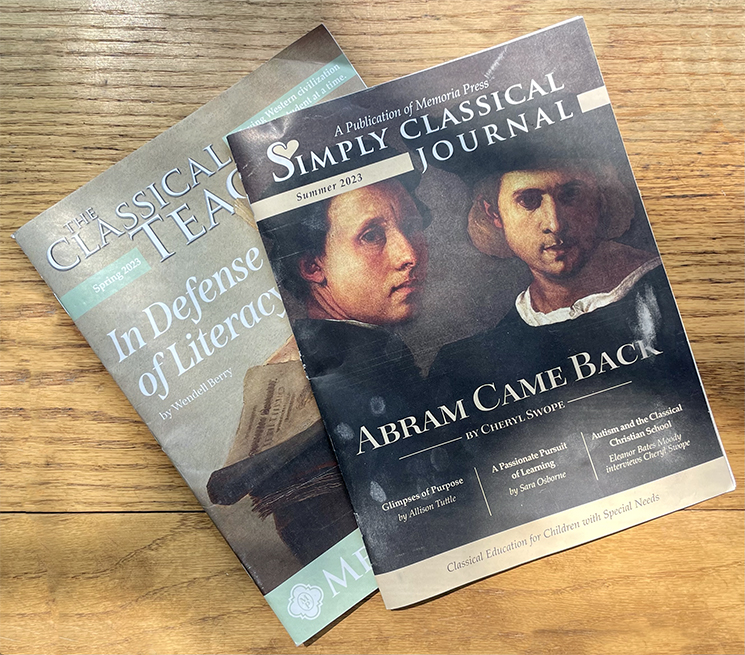
The Classical Teacher
I stalk the mailbox as soon as friends start posting pics of the latest Classical Teacher issue. Issues are released quarterly and each one focuses on a specific theme. Literature, morality, history, the sciences, heroines, and myths are just a few of the recent themes!
The Classical Teacher is also the best place to see new products, get a visual overview of the grade level packages, and snag a $5 off discount code!
You can access the current Classical Teacher issue here; on the same page, you can sign up to automatically receive a hardcopy in your mailbox each quarter!
The Simply Classical Journal
Like The Classical Teacher, the Simply Classical Journal is a free “magalog,” but it focuses exclusively on MP’s Simply Classical program for children with special needs (ADHD, Intellectual Disability, and everything in between!).
There are inspiring yet practical reflections on raising children with special needs, the importance of beauty in the lives of those who struggle, and meaningful insights on giving a rich, classical education to our children.
We’ve used Simply Classical for many years with two of our children and the Journal is a real encouragement for SC families.
The Simply Classical Journal also has a complete, visual overview of each Simply Classical level, new products, and a $5 off discount code.
The current issue can be accessed online here; on the same page, you can sign up to automatically receive a hardcopy in your mailbox each quarter!
Memoria Press Blog
Past articles from the magalogs are available on MP’s blog. You can read nearly 20 years’ worth of Classical Teacher articles here, plus all four years of The Simply Classical Journal!
I often reference these articles when answering questions about MP!
Podcasts
Classical Etcetera Podcast
The Classical Etcetera podcast features MP’s directors and staff as they talk about classical education, literature, virtue, the humanities, mathematics, philosophy, and day-to-day practice within the classroom.
While the primary audience is educators in classical schools, I still enjoy listening to these episodes. I especially enjoy hearing about their current book stacks!
Homeschool Journal Podcast
The Homeschool Journal podcast is hosted by MP’s homeschool liaison, Carrie McGraw, who is a veteran homeschooler herself.
Unlike Classical Etc., the Homeschool Journal was made specifically for those who are homeschooling with Memoria Press, offering insight and encouragement for our day to day challenges.
While the podcast is currently on hiatus, there are two complete seasons available!
In-person & Virtual Conferences
To get the most amazing support, encouragement, practical tips, and all your pressing questions answered: get thee to Sodalitas!
The Sodalitas Homeschool Conference is held each July in Louisville, Kentucky. MP hosts the conference at their brick-and-mortar school, Highlands Latin, and let me just say: they know how to roll out the red carpet.

Seriously though, I cannot recommend this conference highly enough! The sessions offer everything from encouragement to inspiration to the nuts and bolts of teaching MP materials to navigating homeschool challenges in a life-giving way.
If you can’t attend in-person, they now have a virtual option! I’ve attended virtually for the past two years due to family needs, but I’m able to go in-person again in 2025. So excited!
Check out some of our family’s Sodalitas experiences here:
How the Sodalitas Conference is Changing Our Homeschool
While Sodalitas is designed by MP homeschoolers for MP homeschoolers (and those who are considering it!), the Teacher Training Conference is designed for brick-and-mortar teachers who are implementing MP in their schools.
But many homeschoolers stay after Sodalitas to attend Teacher Training as well. It’s a great way to see how each part of the curriculum is implemented in a structured classroom setting — and learn that even schools don’t do everything in the lesson plans!
Sodalitas Week
Sodalitas runs Monday through Tuesday during the second week of July and Teacher Training goes from Thursday through Friday.
On the Wednesday in-between, they offer “Pre-Conference” sessions. These are full-day workshops that take you through a single course in its entirety. I attended the First Form Latin workshop a few years ago and came away with so many notes/tips for teaching that course!
To sign up for Pre-Conference, just click the checkbox on your Sodalitas or Teacher Training registration.
Video Resources for Homeschooling with Memoria Press
Sodalitas & Teacher Training Sessions
Many of the sessions from past conferences are available here for free! Due to internet trolling, MP had to remove video access to past conferences. In-person and virtual attendees still receive post-conference access as part of their registration.
The grade-specific Teacher Training sessions are available through CLSA for a small fee. These sessions are now only available to CLSA members.
YouTube Channel
MP’s YouTube channel is a goldmine for anyone using or considering this curriculum.
Some of my favorite videos are:
Teaching Guidelines series
Classical Composition series
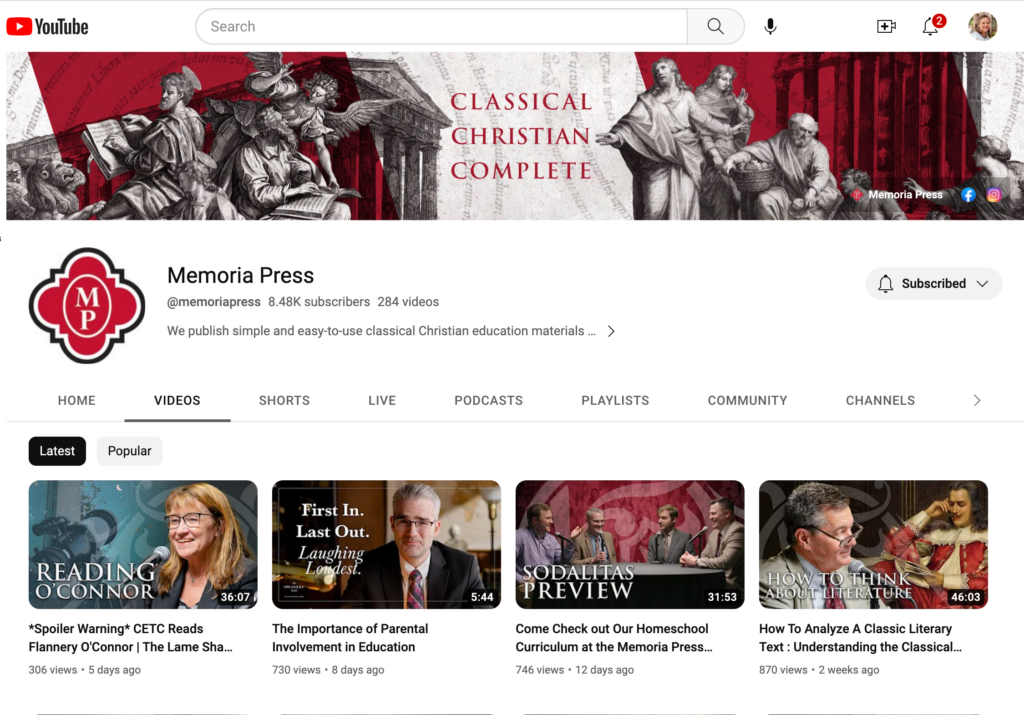
Memoria Academy
Memoria also offers adult classes in Latin and composition through Memoria Academy.
These are actual courses where you’re the student, learning the same material MP students learn. The classes are held live but I’ve heard recordings are available when needed.
They’re also very understanding about young children in the background!
Teaching Helps for Homeschooling with Memoria Press
My number one tip for homeschooling with Memoria Press is to thoroughly read the Curriculum Manual (lesson plans) and Teacher Guides. I mean the kind of reading that involves a highlighter, pen, sticky notes, tabs…however you engage best with a text.
I can’t begin to tell you how many times people get confused or have questions because they only skimmed these resources!
But if you’d like to outsource some (or all) of the teaching when using MP, there are some amazing resources for this!
DVDs/Streaming Videos
MP offers DVDs and/or life-time access streaming videos for many of their courses, including Kindergarten phonics and Traditional Spelling I and Traditional Spelling II!
Many families use the Latin and composition videos but there are also videos for some of the upper level classical studies courses.
HLS Cottage Schools
As you probably know, Highlands Latin School is MP’s brick-and-mortar school in Louisville, Kentucky.
What you may not know is that it began as a Latin class in Cheryl Lowe’s living room! Parents kept asking for more so she gradually expanded to a once-a-week cottage school and then a full-time school.
There’s now a nationwide network of HLS cottage schools, each owned and run by local MP families with support from HLS/MP. Each school determines its own schedule, number of courses offered, rates, uniform requirements, etc.
Check here to see if there’s a cottage school near you!
Memoria Academy
We don’t have a cottage school near us so we used Memoria Academy when we needed to outsource a few classes.
If you need to outsource a course completely, MA’s live courses are excellent. We’ve used them for multiple Latin and composition classes as well as pre-algebra, a science class, and Senior Seminar.
The Academy also offers self-paced classes. These use the DVD/streaming videos but provide computerized quizzes for the course.
A newer offering is courses for special needs students. I personally know the instructors for these courses and I can definitely recommend them!
And if you’re looking for something to keep everyone engaged over the summer, they have a WIDE variety of summer intensives: everything from Latin review classes to additional literature and classical studies and more!
The Academy usually offers a registration discount until March 15th for full-year courses. They also offer a payment plan but if you choose that route you’re not able to get the discount.
We opted for the payment plan and found it very helpful, especially when we had multiple children taking live classes!
Vita Beata
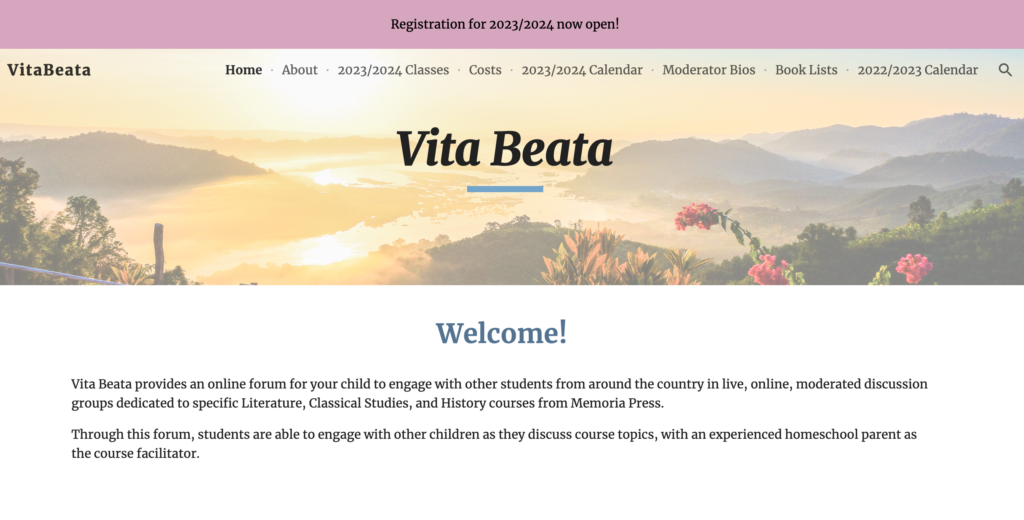
If you’d like your child to connect with other MP students in a less formal — but still richly academic — way, Vita Beata is the way to go.
They offer discussion groups for nearly every MP literature and classical studies course!
Each group is led by an MP mom, some of whom are personal friends of mine. We haven’t been able to join Vita Beata because of our non-traditional schedule; but based on my personal knowledge of the women involved, I highly recommend it!
The Little Latin School
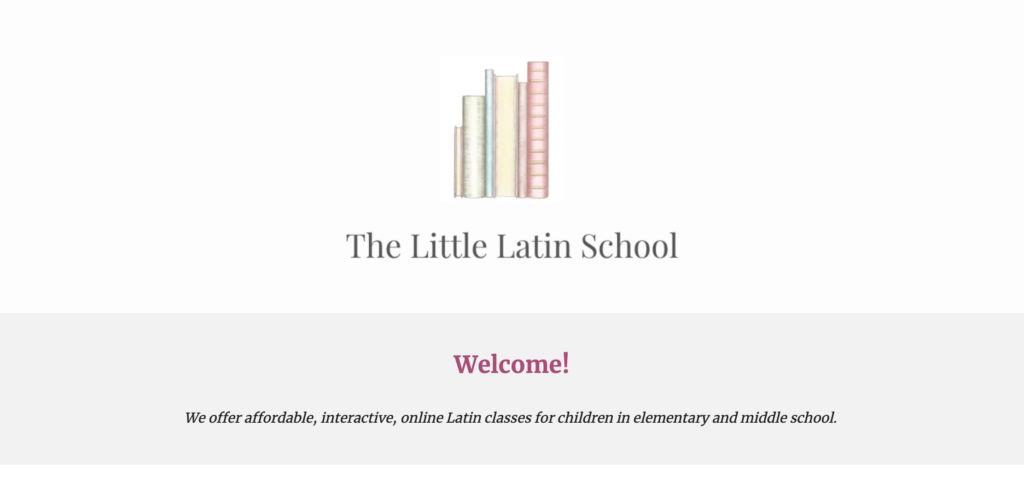
Some of my MP friends use The Little Latin School and love it! Class times are shorter than with MA and more affordable as well.
Led by an MP mom, The Little Latin School offers classes in Prima Latina, Latina Christiana, First Form, and Second Form. Classes fill up quickly so definitely watch her Facebook page for updates!
Virtualis Scholé
Virtualis Schole is led by an MP mom/pastor’s wife and offers both Latin and Classical Composition classes. Classes are incredibly affordable and appear to be very well-done.
I’m really looking forward to my children’s Latin classes this fall! You can see more class samples on Instagram at @virtualisschole:
Writing with Rachael
Our family met Rachael at Sodalitas a few years ago and she’s such a gem! Through Writing with Rachael, she offers Classical Composition classes for the Fable, Narrative, Chreia/Maxim and combined Fable/Narrative levels.
My kids love having her as a teacher!
Mom-created Resources for Homeschooling with Memoria Press
Sometimes families need/want an extra resource for homeschooling with Memoria Press — and go on to create it themselves!
Here are some mom-made resources that are now available to the wider MP community:
Lone Pine Crafts
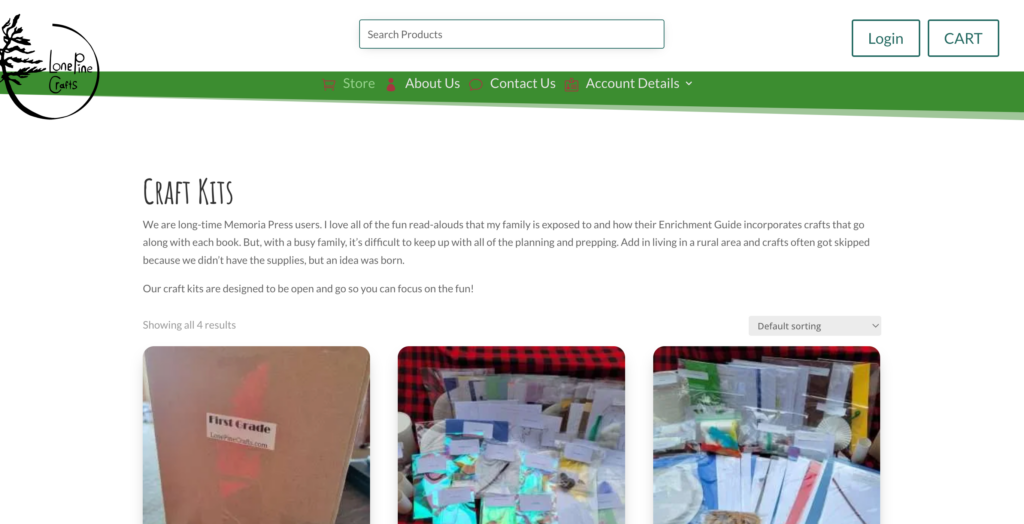
Lone Pine was started by an MP mom to ease the overwhelm of gathering craft supplies for MP’s Enrichment program! She offers ready-to-go kits for Jr.K, Kindergarten, First Grade, and Simply Classical Level B and more kits are planned for the future.
States & Capitals Cards
These gorgeous cards were created by my friend, Sarah, at @excelsiorhomeschoolal on Instagram. She hand-drew each one and I love their beauty and simplicity!
Student Guide Dictionaries
Discussing the vocabulary phrases helps our children discern meaning from context. But there are times when we need this to be an independent activity!
These free dictionaries were created by MP moms for various literature and Classical studies levels. We’ve found them very helpful!
15 Top Questions about Homeschooling with Memoria Press
Program
Why is Memoria Press so focused on Latin?
At first, I had a hard time understanding Memoria’s Latin-centered approach.
When most homeschoolers think of classical education, they think of a humanities-centered curriculum that focuses on fact memorization in the early years, relationships between ideas in the middle years, and the ability to speak and write persuasively about those ideas in the high school years.
This is actually the neo-classical form of classical education, built on a talk given in the 1940’s by Dorothy Sayers, a student of classical languages and a well-known translator.
Memoria Press, however, holds to the traditional form of classical education:
“The classical trivium—grammar, logic, and rhetoric—was a taxonomy of intellectual skills, proceeding from the simple and most basic language skills to the more complex and sophisticated. Grammar taught students how language was structured, logic how to use language in the construction of valid arguments, and rhetoric how language could be used for the purpose of persuasion.
Sayers’ trivium [on which neo-classical education is based] uses the terminology of the classical trivium, but produces something entirely different. Hers is a developmental trivium: The classical trivium is a taxonomy of skills subjects, but hers is a taxonomy of learning. It is focused on the intrinsic developmental psychology of students, not the extrinsic content of an educational program.
Sayers’ move constitutes a Copernican shift in the understanding of education by making the subject of her taxonomy not knowledge, but the process of learning—not what, but how children learn.”
Martin Cothran
Both forms of classical education have the building of wisdom and virtue as their primary goal. However, neo-classical education focuses on presenting content according to specific age-based methods, while classical education seeks to build foundational skills so that our children can actually glean more from that content.
But do WE really have to study Latin?
Did you know that every regular Latin verb has four forms and each form is the foundation for building all the variations for a specific tense of that verb? As Cheryl Swope says, Latin is “incremental, sequential, disciplined.”
And a child has to think through that order every time they work with a word, or phrase, or sentence!
But more than the amazing benefits Latin offers our children’s minds, it also allows them to read some of the greatest works ever written in their original language — with all the depth and nuance that entails. It removes the necessary biases of translation and gives insight into an author’s true meaning.
And we’re not just talking about works from the early Middle Ages; Latin was the official written language of academia and government until the 1700’s! In an age that consistently warps language, the ability to go to the original source is a priceless gift.
If you’re still unsure — or just want an extra shot of inspiration — this 5-minute video sums it up best!
What makes MP’s K-2 Program Classical?
What is taught and how it’s done:
- Reading is taught through phonics rather than whole-word and/or a context-strategy approach.
- Self-read books are meaningful as soon as possible
- The read-alouds are carefully chosen to nurture an appreciation of goodness, truth, and beauty.
- Art focuses on learning to appreciate and recognize what is beautiful, rather than creative expression with no foundation.
- Math focuses on age-appropriate arithmetic rather than algebraic concepts.
- History and science are focused on the child’s natural sphere: home, yard, community rather than abstract social studies or ancient history.
All of this (and much more) makes for a rich, classical education in the younger years!
Does Rod & Staff math work?
Yes! Like the rest of MP, R&S Math honors the Order of Learning. It doesn’t rush to study the highest things, like algebraic concepts.
Instead, it progresses intentionally from foundational block to foundational block so our children are ready to deeply understand and appreciate the deeper concepts later on.
I have absolutely no doubt that my older kids would have done FAR better in math if they had had R&S as their foundation.
Here’s what I love about R&S:
- Straightforward presentation
- Intentional preparation and scaffolding for each new concept (ESPECIALLY for word problems)
- Mental math building
- Constant review
- Plenty of time to really learn a new concept before being given another one
- Use of homemade manipulatives to support and solidify concepts in the younger years
The trick is to use the Teacher Manuals for K-3; this is where all the meat is. The workbooks are simply for practice!
As for whether children will be ready for higher math with R&S, here is where HLS students end up after 7 years of R&S Math:
Highlands Latin School WebsiteOur goal is for all able students to complete AP Calculus; students who take AP Calculus in 11th grade take Statistics or Computer Programming as seniors:
7th Grade: Pre-Algebra
8th Grade: Algebra I
9th Grade: Algebra II
10th Grade: Euclidean Geometry
11th Grade: Pre-Calculus or AP Calculus (AB or BC)
12th Grade: AP Calculus (AB or BC) / AP Statistics *
Do we have to use all the workbooks?
No, but choose carefully! I go into this in FAR more detail in the blog posts below:
Memoria Press Student Guides: Workbooks or Something Deeper?
The Great Homeschool Writing vs. Narration Debate
Why are the books so “plain”?
I have multiple children with ADHD and (surprisingly!) none of them have complained about the lack of color or imagery in their student guides. The clean layout allows them to focus on the content they’re learning rather than the design of their books.
But they love the well-chosen art and photographs in their textbooks!
Placement
How do I know where to place my children?
“Incorrect placement is an injustice to the student and precludes mastery.”
John Mays
Anyone else feeling gut-punched by that quote? I’ve definitely been guilty of incorrect placement!
Here are the things I’ve learned about placement when homeschooling with Memoria Press — hopefully they’ll save your family from the heartache caused by incorrect placement!
How to Make Memoria Press Work for You: Homeschool Grade Levels
How to Place a Struggling Learner with Memoria Press
Combining Children in a Classical Homeschool
Is my child ready for Memoria’s Kindergarten or First Grade program?
When we switched to MP, I had two rising 1st graders. The trouble was they were still sounding out every single word when reading. I knew they weren’t ready to read the first grade literature selections mostly on their own so I started them in MP’s Kindergarten program. They’re now in 7th and 8th grades and doing very well!
MP put together this Kindergarten Readiness guide to help decide if your child is ready for the Kindergarten Program.
If they’re not ready, it’s OKAY! Give them time to develop more. The Jr. K program — in either a 2-day or 5-day option — could be a great way to spend this time together.
If you’re trying to decide placement for First Grade, check out the First Start Reading Table of Contents. You can use this PDF to see if your rising 1st grader has learned (and is reasonably fluent in) all the phonograms taught in MP’s Kindergarten program.
Some families only need to do Book C and/or Book D in order to be ready for 1st grade phonics, literature, and spelling.
What is the “Accelerated Track”? What does 3A mean?
When MP first released their homeschool packages, the third grade program reflected what they do at Highlands Latin (MP’s brick-and-mortar school).
This was a huge jump from second grade pacing and expectations and many homeschoolers said it was just too much. In response, MP split several of the third grade subjects into a two-year pace. These subjects were Latin, Greek Myths, Christian Studies, and Geography.
MP still offers the original track as their “Accelerated” cores. You’ll see families refer to these as 3A, 4A, etc. This track completes those third grade subjects in one year and then moves on, effectively assigning all courses except math, composition, and spelling one year earlier than in the “Moderated” or homeschool track. The homeschool track is often referred to as 3M, 4M, etc.
For example, if your third grader does Third Accelerated (3A), their 4th grade year in the Accelerated track (4A) will contain the same materials as the Moderated track’s 5th grade year (5M). Again, this is with the exception of math, composition, and spelling which remain at grade level in both tracks.
Things to Consider Before Choosing the Accelerated Track
While this can sound like a tempting path, please consider the child in front of you.
I do not recommend this track if ANY of the following is true for your child:
- they are new to Memoria Press
- they have extensive outside activities/commitments; remember that extensive is a relative term —our children often feel the stress of these commitments more than we do
- they have time-based anxiety
- they struggle with expectations-based anxiety
- they have difficulty with writing stamina
I also do not recommend this track if ANY of the following is true for you as a PARENT:
- you struggle with perfectionist and/or over-reaching tendencies
- you have babies or toddlers to care for
- you have other children who need one-on-one help with school
How can I use Memoria Press with a struggling learner?
We’ve used MP with multiple struggling learners and it has been wonderful for them! I’ve shared several posts on how we do this:
All My Posts on Homeschooling Struggling Learners with Memoria Press
What if my child doesn’t fit neatly into a core?
Most children don’t!
Meet your child where they’re at in each subject. MP lets you customize subjects across levels and now offers a Customized Curriculum Manual based on your unique choices for your child!
This video shares more on how to customize a core. It was filmed before customized manuals were an option, but the ordering process remains the same:
Budget for Homeschooling with Memoria Press
How can I get Memoria Press books cheaper?
First, see the video above!
Second, there are other options, but keep these VERY important points in mind:
When you order directly from MP, you’re guaranteed the following:
- The most up-to-date materials
Sometimes the warehouse accidentally sends a previous edition of something, or something that has printing/pagination errors; but when that happens MP replaces it FOR FREE.
When you order from a distributor, they might still be working through older inventory/editions.
- FREE PDF copies of quizzes, tests, and reproducible content
No more copying or scanning/printing! Note: MP often still gives these PDFs to families if they can show a receipt from an approved distributor such as Christian Book or Rainbow Resource.
- Free/reduced cost updates
If you have a Curriculum Manual from three years ago and the plans have undergone extensive changes, MP often provides an updated manual for free or at reduced cost. This also applies to some books!
- $3 DVD/CD replacements
If any media purchased from MP becomes damaged, you only have to pay a $3 shipping fee to get it replaced!
- A 60-day return policy
If your plans change or you realize your child needs a different level in something, you can return/exchange resellable materials up to 60 days from purchase.
Because of all this, we bought directly from MP whenever we were buying a customized package (best deal!) or other MP-published items. For us, the exceptions are:
- Read-aloud books; I got these used or from the library
- Items that 1) aren’t published by MP (like an extra Rod & Staff math book), or 2) an MP book that I know hasn’t had edition changes/updates
- We’re in dire financial straits
Note for down the road: after 9 years of using MP, we own almost all the non-consumables we ever plan to use! So I’m just “filling in gaps” when I buy curriculum each year. Because of this, it’s now cheaper for us to buy from Rainbow Resource as long as I’m sure it’s the most updated edition.
How can I save on shipping costs?
To save on shipping, I buy our MP-direct materials in July. MP usually runs a free shipping promotion in February and Sodalitas attendees (including virtual!) receive a free shipping code in July.
Alternatively, if there’s a GHC or similar homeschool convention near you, MP also offers free shipping for orders placed at those!
IF YOU LIVE OUTSIDE THE U.S., Memoria has international distributors. Check out this page for more details; you’ll need to contact MP to see if the PDF benefits listed above are still available when buying from an international distributor.
When do the books go on sale?
When you order a Curriculum Manual and one or two complete subjects directly from MP, you’re eligible for a package discount. I’ve seen this be anywhere from 25-40% off retail prices, depending on the courses purchased!
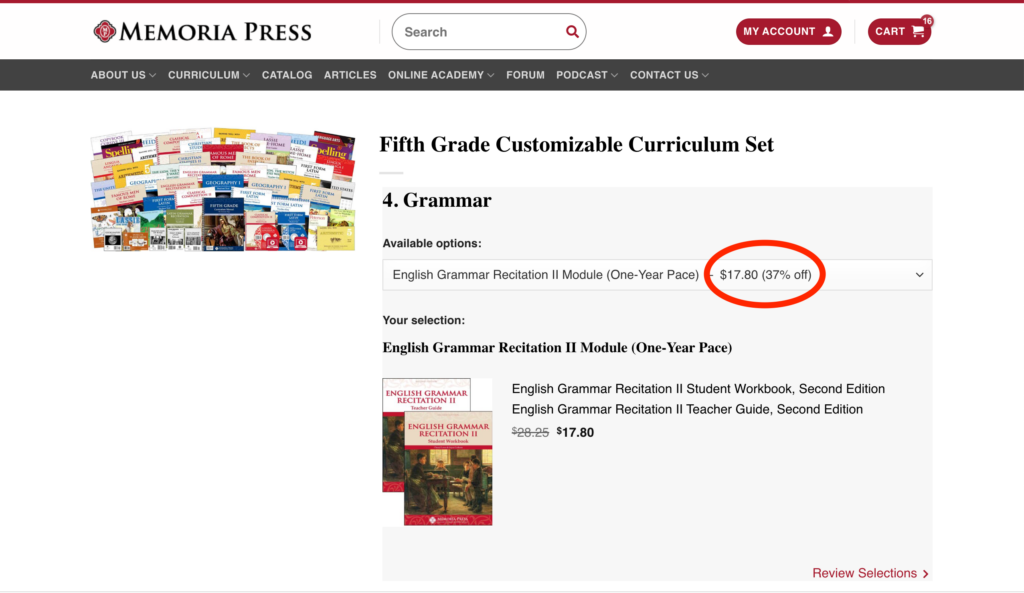
What if I still want to buy used or from someone else?
If you would still like to buy used, or from a US distributor, here are some good sources:
Rainbow Resource: I’ve been a RR customer for years and have always been pleased with them.
MP Buy/Sell Facebook Group: I’ve used this group for resources such as art cards. It’s also another option for the read-aloud books.
Daily Logistics
It took me three years to find our groove after leaving an MP-based co-op (the pandemic didn’t help); but I learned some life-changing lessons during that transition. I truly believe they’re the secrets to homeschooling with Memoria Press:
How do you get to everything in the lesson plans?
You aren’t supposed to. Even MP’s brick-and-mortar school doesn’t get to everything in the lesson plans!
The key is to PRIORITIZE YOUR CHOICES. As my friend Dianna says, Memoria presents a feast to our children but you can’t eat everything offered at a feast without getting an upset stomach!
Choose your share of the feast with intentionality.
What parts are essential?
Instead of gorging on every good thing, I ask myself what is *essential* for being a well-formed person? I choose accordingly, and let the rest go.
Here’s what that looks like for us:
- We don’t study geography formally. It’s wonderful that a child can memorize nearly every country and capital in the world, but it isn’t necessary to being a well-formed human being. What is necessary is knowing the continents, where major countries are located, and the states/capitals of your own country. Referencing a map on the wall can accomplish all this.
- We don’t study science formally until 7th grade. Observation and classification are the goals of early science. I keep MP’s nature study books and the Petersen reference guides available for free reading and the kids often take them outside to identify/learn more about something they’ve discovered in the yard.
- Latin is our sole grammar program. It makes grammar clear and concrete. We cover capitalization and mechanics as needed in our other studies.
- We focus on exposure for early Classical Studies. The goal of Famous Men is to familiarize our children with the most important people and events from each culture so they have a foundation for deeper history studies. While it would be wonderful for a child to hear any name and be able to go into all the details of that person’s life, it isn’t necessary to being a well-formed person. Exposure to the stories and events, and knowing the most important dates, will accomplish the goal of preparing them for future studies.
- And the number one rule of simplifying: don’t do summer work. If it’s not essential enough to earn a place during the school year, it’s not essential. Rest.
So everything else is essential?
Nope. Many materials have been added to the packages over the years — often at customers’ requests — but their benefits are usually available in other parts of the curriculum.
Here are things we ALWAYS skip (in addition to the things above):
- Everything in Kindergarten except Math, Phonics, and Enrichment! Yep. You read that right. We only do Math, Phonics, and Enrichment and it’s a beautiful year! We just made sure that little people joined us for their siblings’ Christian Studies readings.
- Copybook. There are plenty of copywork and scripture memorization opportunities throughout the curriculum!
- Timeline. Instead, we learn the dates within each course.
- 100 Days of Summer Reading. The kids gravitate towards reading on their own so we haven’t needed this.
- Question Guides for K-2 Christian Studies and Music. We just talked naturally about what we were reading or listening to; sometimes, we simply listened.
- Book of Crafts. In all honesty, I don’t have the energy for crafts; but the kids have grown up with drawing, painting, and handwork so I don’t feel bad skipping this.
- Spelling Workout. I don’t like this program. I would use R&S Spelling (available by request from MP) if my older kids needed more instruction after Traditional Spelling I-III.
How do you do this with multiple children?!
First, simplify (see above).
Second, consider combining content subjects (not skill subjects!)
Third, look at how much time you can realistically devote to school each day. Take into account personalities, toddlers, your family’s unique challenges, etc.
Then, divide that amount of time into blocks. Some families have each child work on the same subject during a block, but that doesn’t work for us.
Instead, each child gets a block where I work with them one-on-one. Even if it’s only 30 minutes, when our block is up, I move to the next child. This has been so much more peaceful for us!
Learn more about our one-on-one approach here:
A Peaceful {and Realistic} Way to Homeschool Multiple Children
Will homeschooling with Memoria Press keep my child from enjoying childhood?
Remember that exploring interests and enjoying the outdoors should be part of life. They don’t need to be part of school to be valid — or to make school valid.
On a daily basis my crew is studying, drilling, writing, and discussing. And they’re also on a daily basis: baking, bird-watching, crocheting, knitting, using modeling clay, overhauling small engines, inventing/building things, leather-working, sewing, listening to audiobooks, running around outside, embroidering, climbing trees, painting, drawing, etc!
The Bottom Line for Homeschooling with Memoria Press
Your MP homeschool won’t look like everyone else’s. It’s not supposed to.
Homeschooling with Memoria Press has been an amazing journey for our family; but only when I keep it in its proper place as the means not the end.
Every day, I have to set aside pride and my own plans and use this feast in a way that is best for each child — right here, right now.
Approach your journey in this light and it will be amazing for you as well!
If this post helped you, please share it with the buttons below!
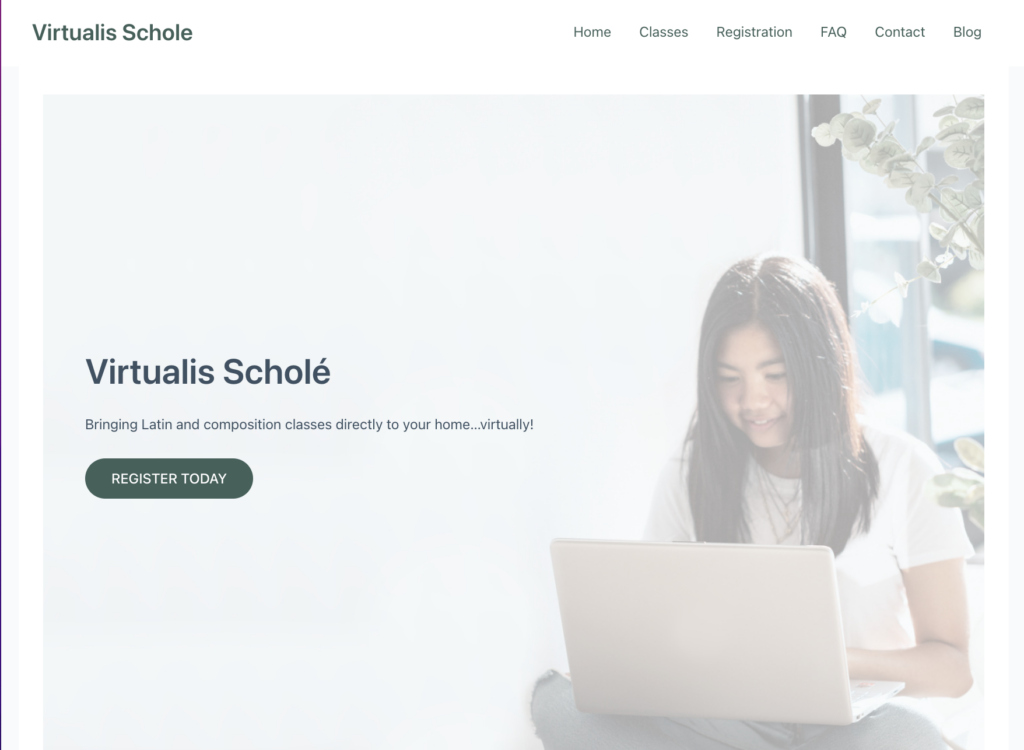
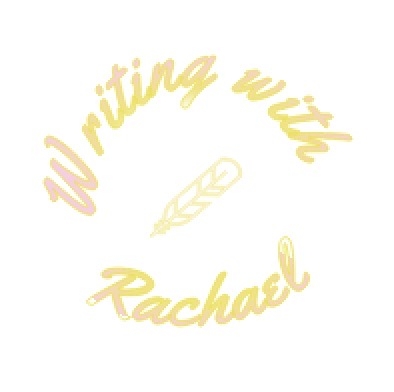
I cannot thank you enough for this blog post, it is so helpful!!! I am a first time homeschooling mom (wasn’t homeschooled myself!) I was given more of a classical education in a charter school growing up and knew I wanted those elements when homeschooling my children. But I have always felt so overwhelmed on where to start. We are finishing up preschool with MP and I wasn’t sure if I should stick with it or not. This was so so helpful! Thank you so much for taking the time to make this in depth post. I haven’t been able to find much on MP online so this was abundantly helpful! Blessings to you and your family.
I’m so glad this blessed you, Meg!
Lovely article, wish I had seen this sooner. MP can be so challenging with multiple children and I love your advice to use the necessities. Can you tell me what wooden containers you are using for flashcards in your picture? 🙂
They’re actually bamboo drawer organizers from Lowe’s! I’ve seen similar in other stores as well and they tend to be very affordable.
What a wonderful post!!!
Jen, this is amazing! Absolutely the most thorough article/blog I’ve ever seen on anything!
Thank you!